Majdal Shams tries to recover after Hezbollah attack that killed 12 minors
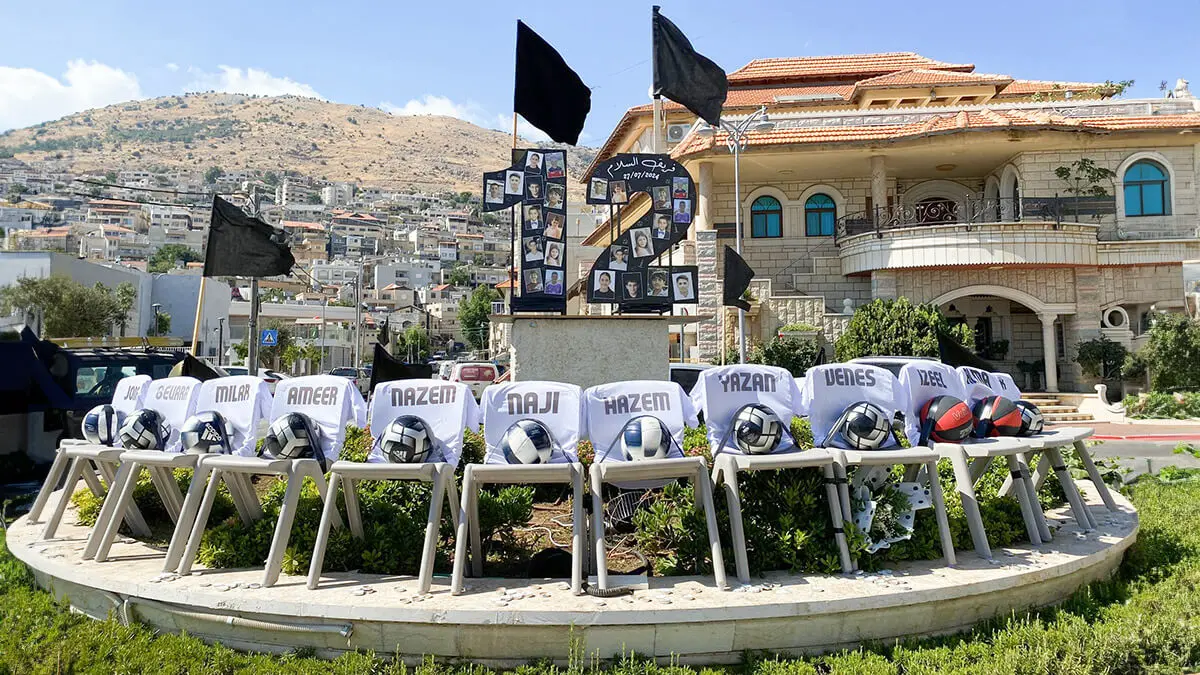
- Israel responds to Majdal Shams attack, eliminates senior Hizbollah official in Beirut
- The vital importance of the Golan Heights for Israel
‘They just wanted to play football,’ laments Dolan Abu Saleh, mayor of the Druze town of Majdal Shams where time stood still last Saturday. At around 6 p.m., an Iranian missile launched by Hezbollah and loaded with 50 kilos of dynamite hit a football pitch, killing 12 children who were unable to reach the air-raid shelter.
The death of these youngsters, aged between 10 and 16, has been a tragedy, not only for the Druze community, but for Israel as a whole. The Jewish state has already launched its retaliation against Hezbollah by eliminating a senior commander of the terrorist group in Beirut whom it blames for the attack.
Massive Damage to the Building which was Struck just now by an Israeli Airstrike within the Haret Hreik Neighborhood in the Suburbs of Beirut. pic.twitter.com/DOB8dku3HH
— OSINTdefender (@sentdefender) July 30, 2024
Meanwhile, life in Majdal Shams continues despite the recent attack and the escalating clashes between Israel and Hezbollah that are raising fears of open warfare between the two sides.
The Druze people, draped in black flags in mourning, want to move on and there are no plans to evacuate as has been the case in other areas of northern Israel. ‘They will evacuate in a very serious situation,’ says the mayor, although he admits that, despite the strength of his people, it will take time for them to recover from this heavy blow.
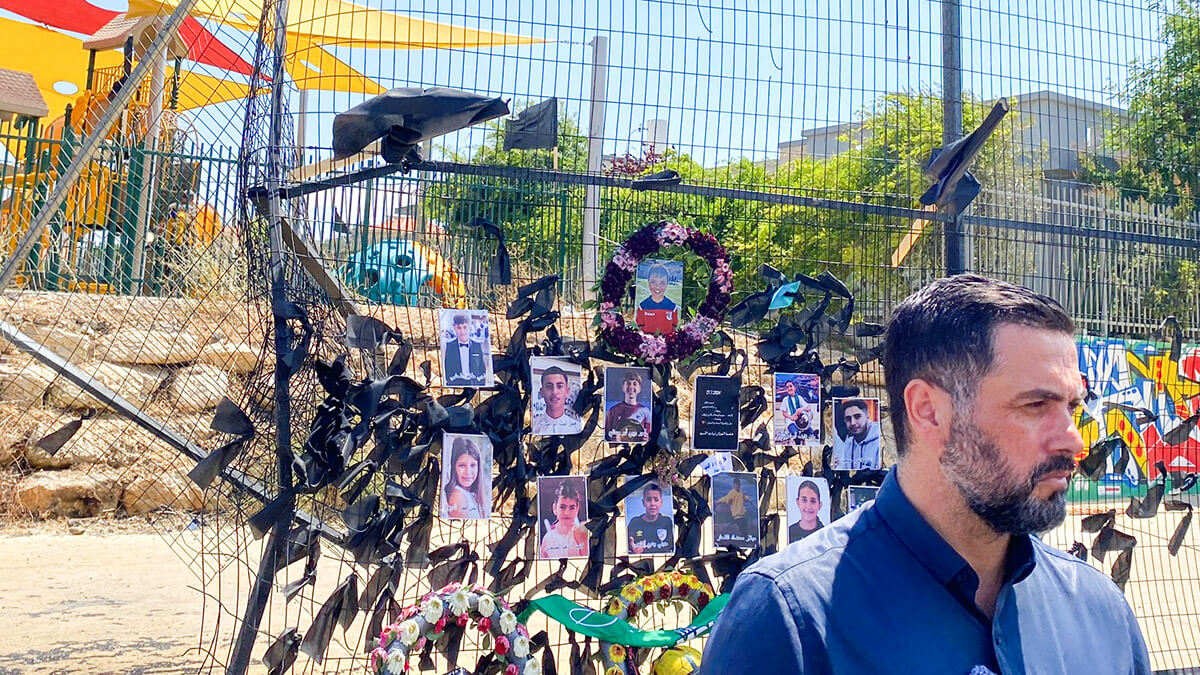
Colonel Hamada Ghanam, a member of the Druze community in Majdal Shams, reiterates Abu Saleh's words, stressing that the citizens intend to continue living here. ‘It is in our DNA, we are not afraid of what is happening in this area’.
Ghanam, who serves in the Israeli army like so many other Druze, defines his community as an ‘inseparable part’ of the country. The Golan Heights is home to an estimated 20,000 Druze, who live alongside some 50,000 Israeli Jews.
In other parts of Israel, the Druze accepted Israeli sovereignty after the founding of the state in 1948 and generally identify themselves as Israelis. Moreover, many of them serve in the army even though they are not obliged to do so.
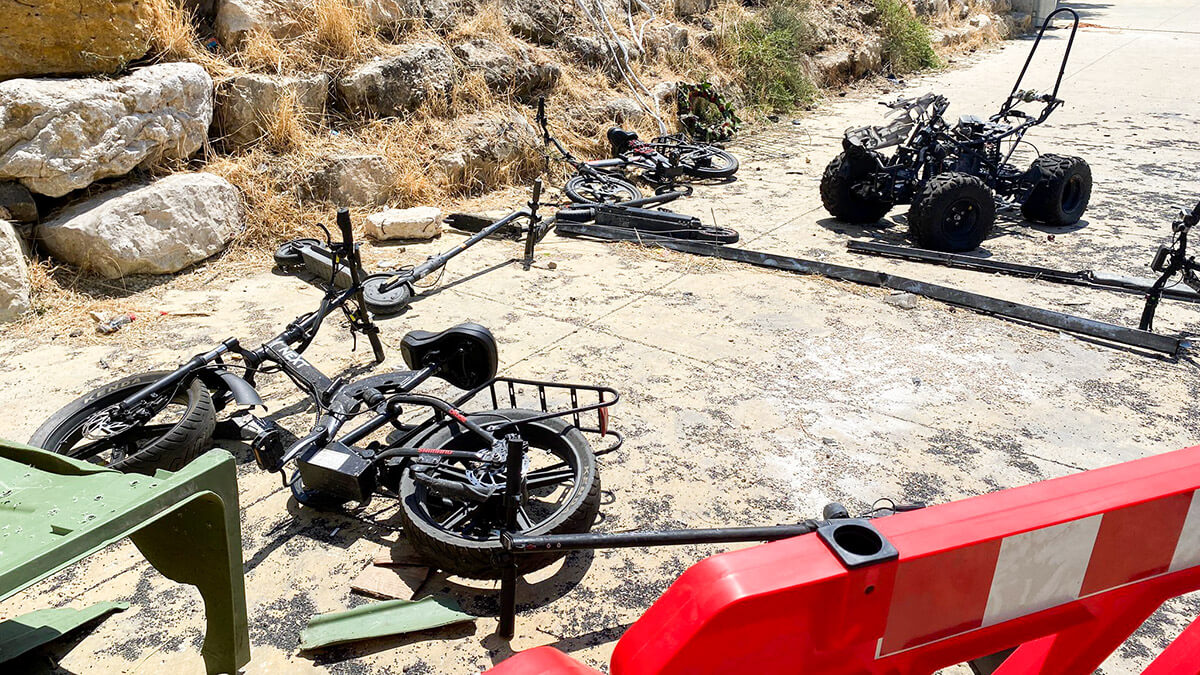
In contrast, the Druze of the Golan maintained their Syrian identity after 1967, rejecting offers of Israeli citizenship. This ethno-religious group is characterised by its loyalty to the country in which they live and are born.
Over the years, however, the Golan Druze's ties to Damascus have frayed and, as a result, many young people have begun to apply for Israeli passports.
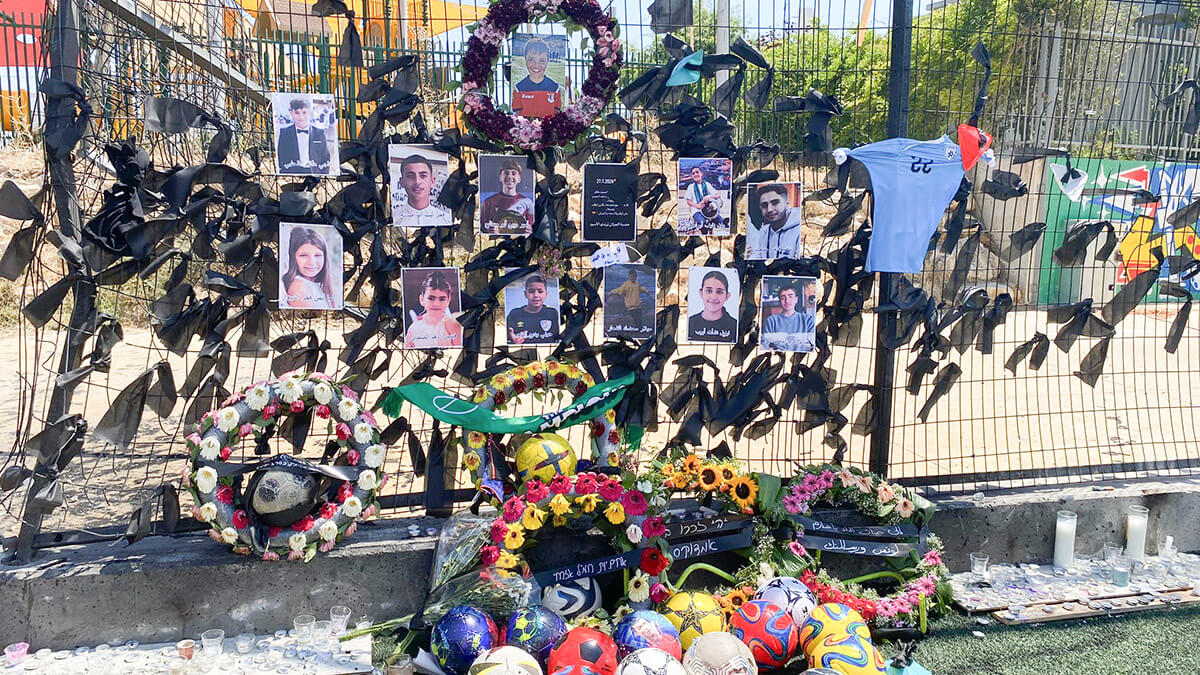
‘We respect the Druze living in other countries, but we have our own circumstances and we support our country,’ says Ghanam, who stresses that his people want peace. ‘We don't want war, Hamas started it and Hezbollah joined, pushing the whole of Lebanon into conflict,’ explains the Druze colonel, also recalling that some Lebanese Muslims and Christians don't want war either.
‘We want our children to grow up in peace,’ adds Ghanam, who does not lose hope that one day there will be peace between Israel and Lebanon. ‘Inshallah we will have peace with Lebanon and we will be able to visit the country,’ he concludes.
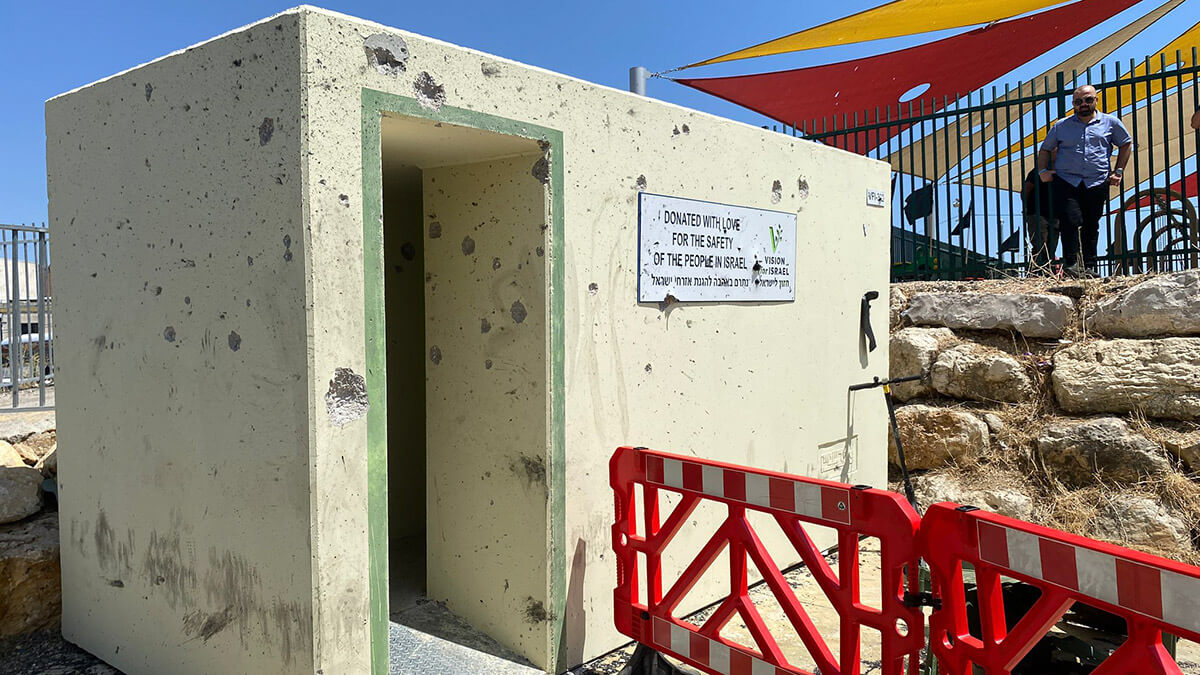
Israel responds to Majdal Shams attack, eliminates senior Hizbollah official in Beirut
Hezbollah saw a golden opportunity to attack Israel following the Hamas massacres of 7 October. Under the pretext of supporting the Palestinian people, the Iranian-backed Lebanese Shi'ite militia has been firing shells into Israeli territory on a near-daily basis ever since.
Clashes between the Israel Defense Forces and Hezbollah have left deaths on both sides of the border. However, with the attack on the Majdal Shams football field, Hizbollah has crossed red lines and Israel has already responded, eliminating Fu'ad Shukr, a senior adviser to the group's leader, Hassan Nasrallah, in a targeted air strike.
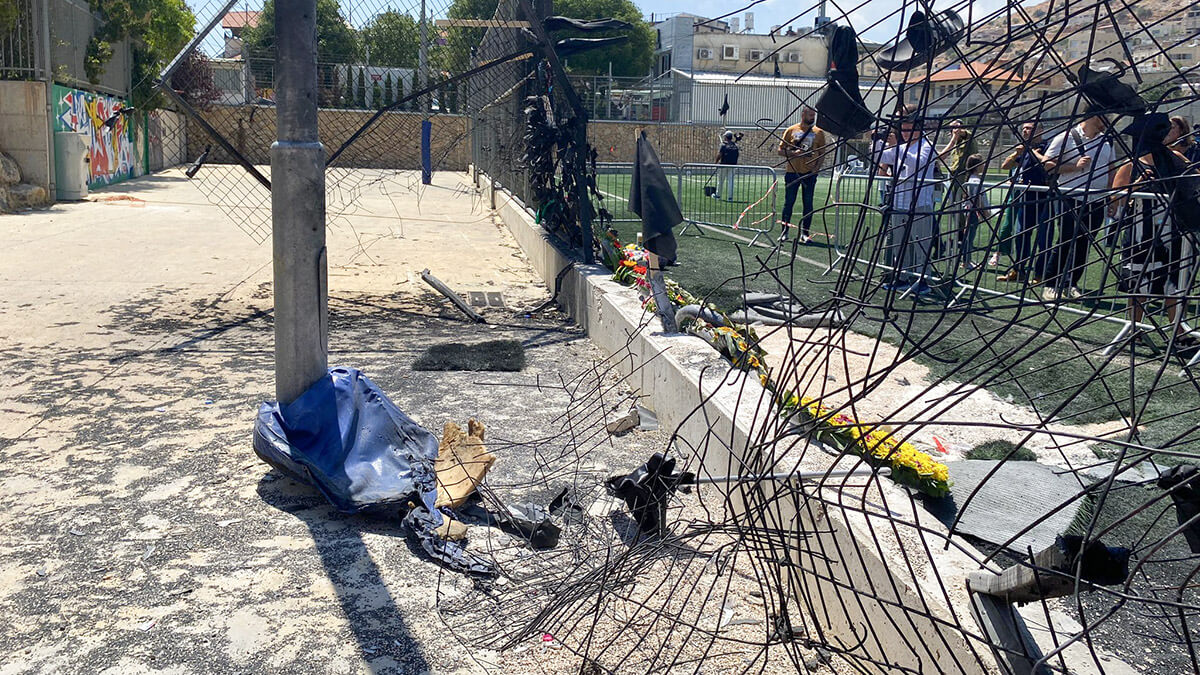
Shukr also played a key role in the planning and execution of the 23 October 1983 bombing of the US Marine Corps barracks in Beirut that killed 241 US servicemen.
Hezbollah is likely to respond to this attack, which comes on top of the death of Tehran-based Hamas leader Ismail Haniyeh, further heightening regional tension and the thirst for revenge of the so-called Axis of Resistance led by the Islamic Republic of Iran.
The Iranian regime, through its regional proxies, coordinates and orders attacks against Israel from several fronts: the Gaza Strip with Hamas, the Houthis in Yemen, Hezbollah in Lebanon and pro-Iranian militias in Syria and Iraq.
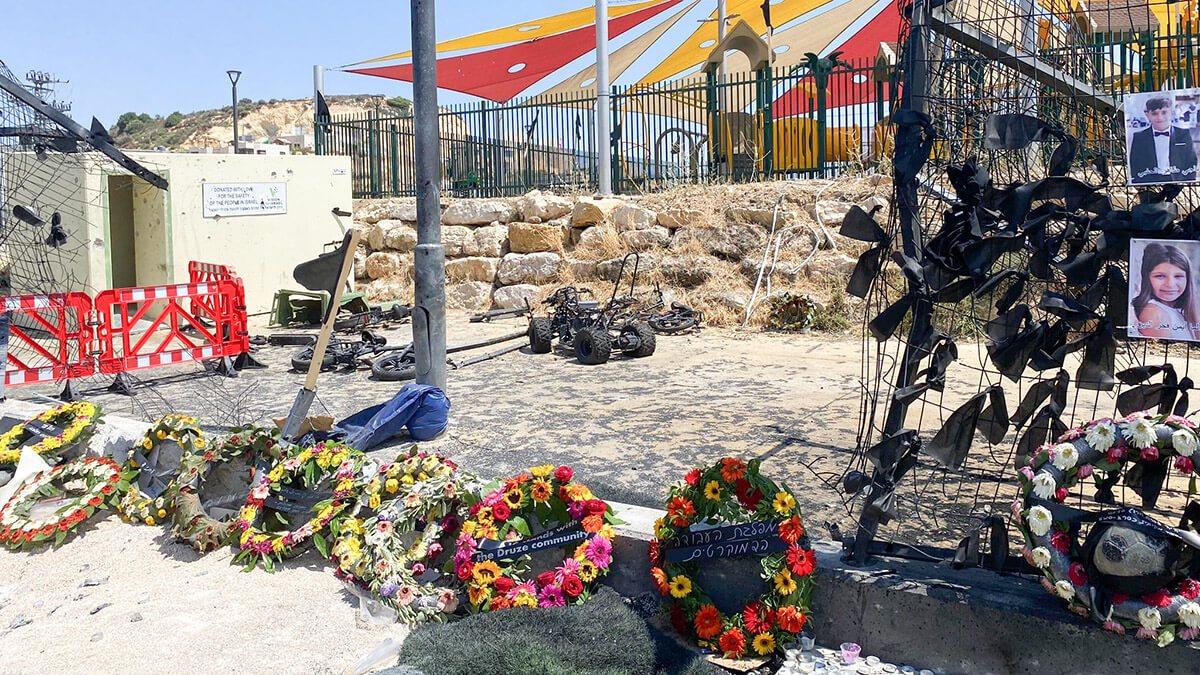
The vital importance of the Golan Heights for Israel
As former IDF intelligence officer Gidi Harari points out, in addition to attacking Israel, Tehran's goal is to spread the Islamic revolution, first in the Middle East, and then worldwide.
For Tehran, Israel - the only Jewish state in the region and the world - is the major impediment to the spread of its ideals in the Middle East. ‘We Israelis, not only Jews, but also Druze, Christians and Muslims will fight for our country, the only democracy in the region,’ he stresses.
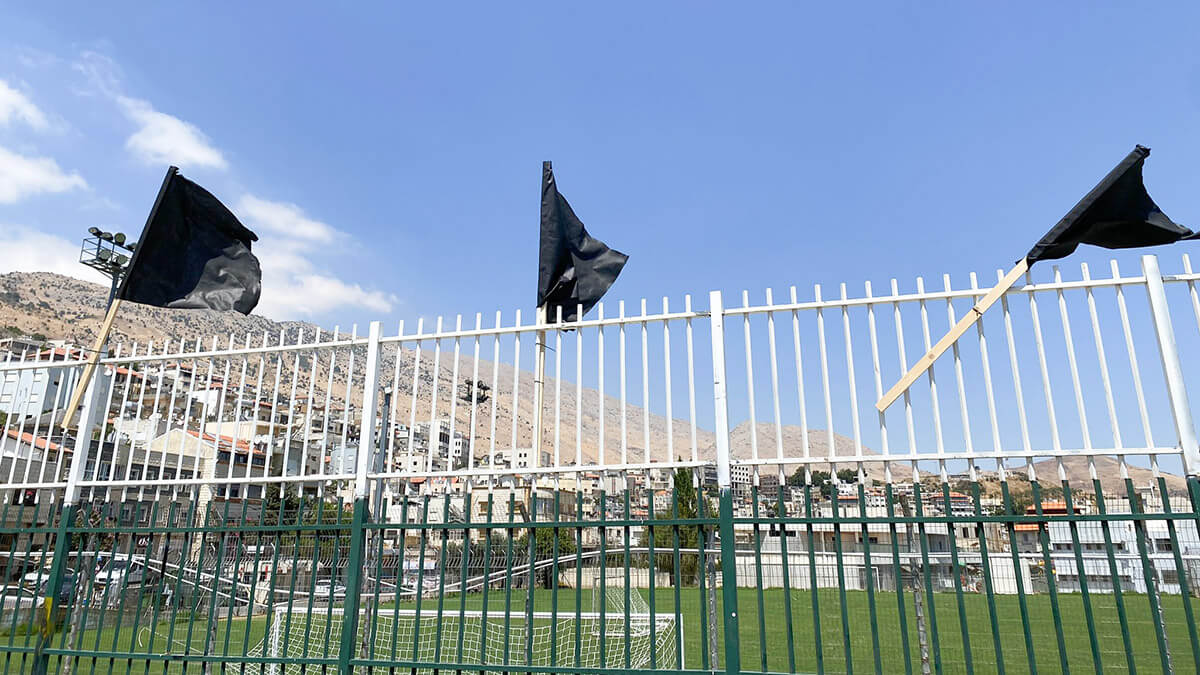
Regarding the recent Hezbollah attack and the Lebanese group's statements denying responsibility for the deaths of the 12 minors, Harari says that launching a missile with kilos of dynamite ‘is not a mistake’ and that it was indeed intended to hit Majdal Shams. ‘It's not the first time, although this time, unfortunately, children were killed,’ he notes.
The former intelligence officer also refers to the great importance of the Golan Heights for Israel's security. ‘If Hezbollah takes them over, it's a threat to the whole country, so we won't allow it,’ he says.
The strategic region, once Syrian, was captured by Israel during the Six Day War and formally annexed in 1981. However, this action has not gained international recognition, except from the United States under the presidency of Donald Trump.








